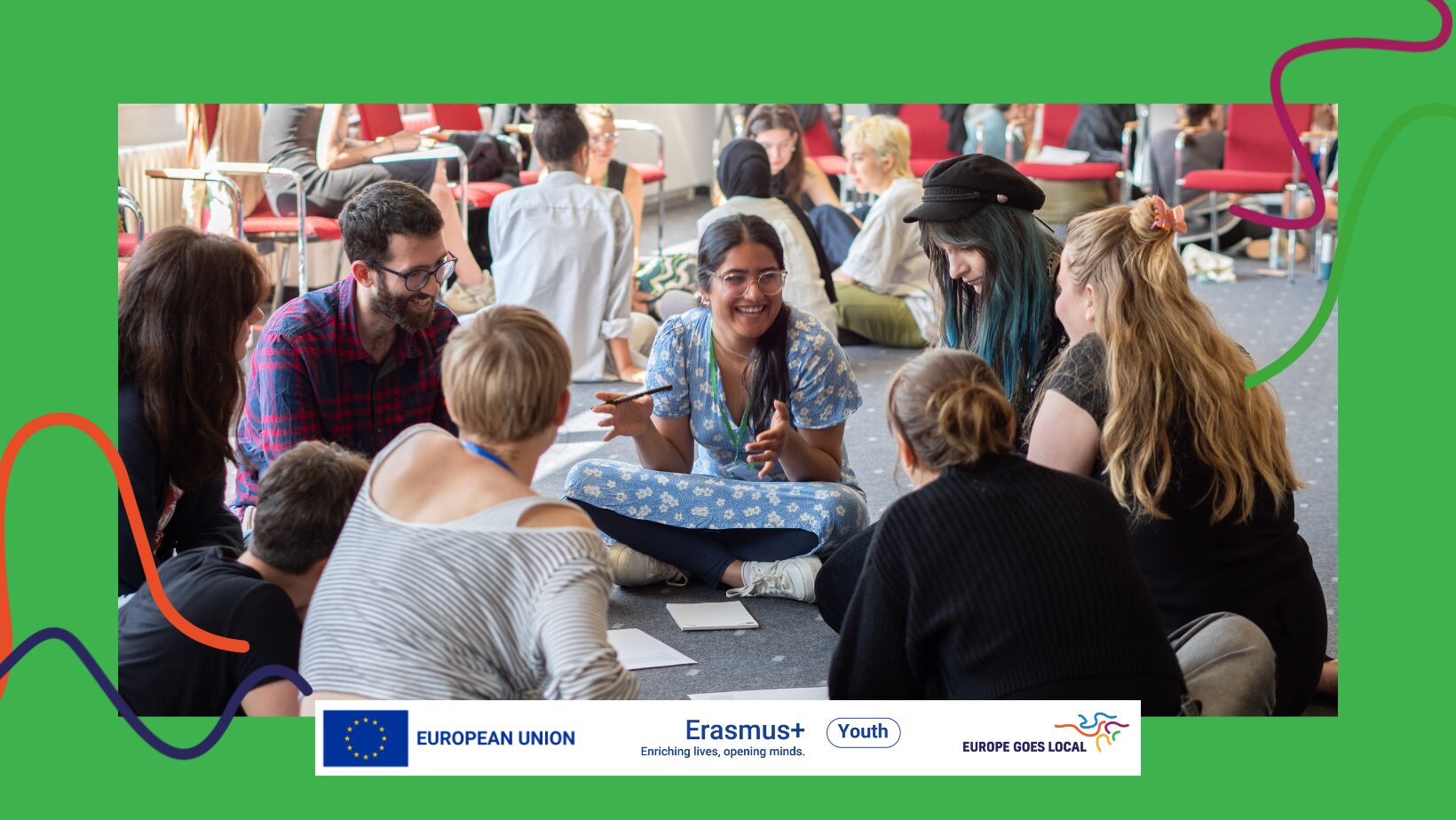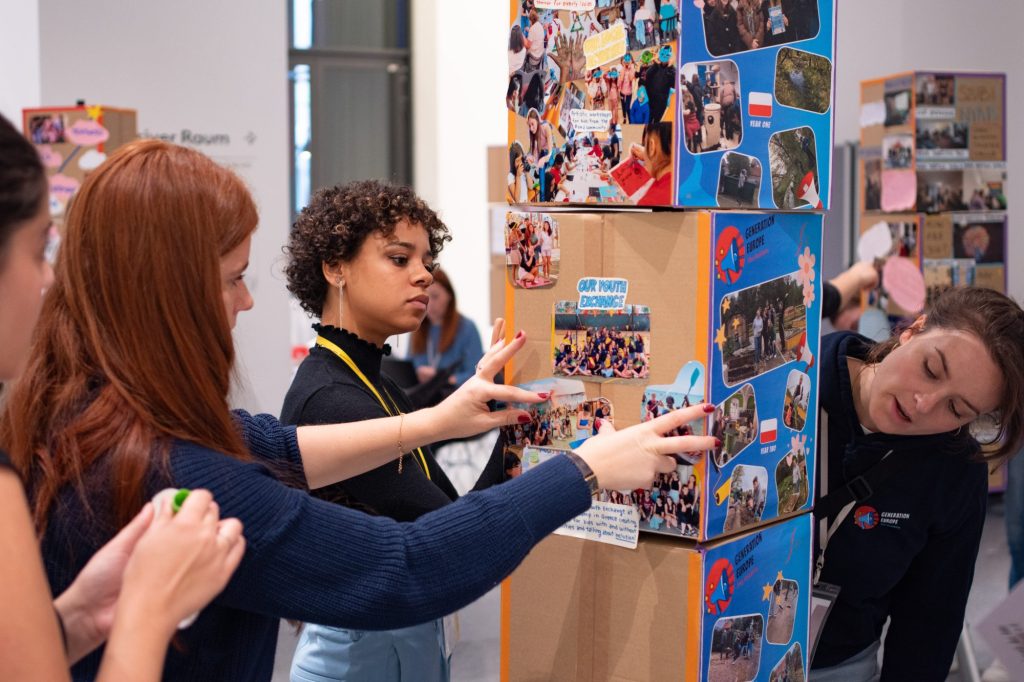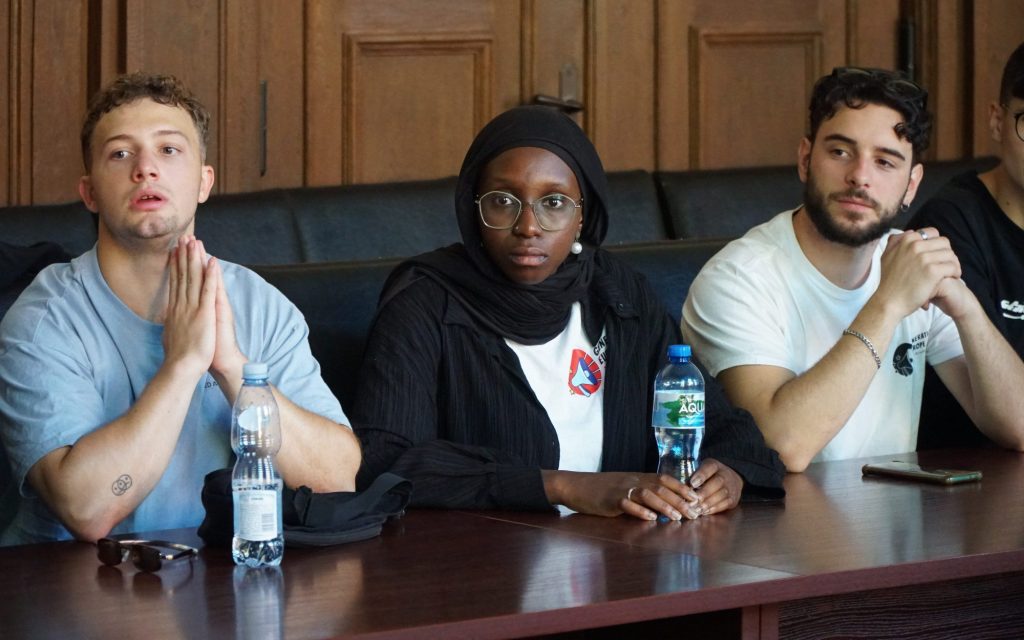
We had the pleasure to talk to Lucia Andreatta, program manager and team coordinator in Generation Europe – The Academy, an international network of youth work organisations and a funding programme for European cooperation with social participation for all as the core of its mission. Generation Europe is a network of more than 40 youth work organisations from 14 European countries. Every partnership consists of youth organisations from three countries who continually collaborate over a period of three years in order to get involved in society and improve it.
What are the main activities of Generation Europe – The Academy? What issues and challenges in the field of youth work are you addressing?
We are an international network of youth work organisations and a funding programme for European cooperation. Our goal is to promote social participation for all. The starting point was to make international youth projects accessible to young people regardless of their origin, parental income, and previous success in the formal education system. To reach that goal, our partner organisations enable young people to form local groups. They implement projects in their communities and meet at international youth encounters. The network currently consists of more than 40 local youth organisations from 14 European countries.
International Association for Education and Exchange (IBB e.V.) has been organising this evolving network of European youth organisations for 15 years now. We started back in 2009, with a programme called ewoca³. At that time, the focus was on enabling project partners to organise European workcamps for the target group. Since then, three-country partnerships, in which the partners work together over three years, build the core of our network.

Your motto is ‘Act local – connect European – think global’. How did local work come to be the second focus, alongside international youth encounters?
With the workcamp programme, we proved that our approach can lower access barriers for young people and strengthen local youth capacities. However, to make the biggest difference in terms of opportunities and social inclusion, international youth work must not stand alone. Young people need permanent, local structures in which they can organise and which empower them to get involved. So the programme was developed to meet the needs: Building local groups became a main pillar of the concept. In their local groups, the young people develop local action plans on issues that affect them to make a difference in their communities. International cooperation and local work are now reinforcing each other, strengthening the local basis for active European citizenship.
Who are the main participants of the programme, and what methods have you developed to combine participatory local youth work with European networking?
Our local project partners are very diverse: open youth centres run by municipal or independent organisations, large and small local associations, educational institutions, a vocational school in Germany, a socially committed independent theatre in Greece… Of course, conditions for youth work are different in Hungary, for example, than in Portugal. But our network is generating a huge amount of knowledge that we share and the community of practice. In the previous programme phase, we already published a Method Box

Lobbying and advocacy now plays a significant role in your network of European youth cooperation. Why is that?
Many organisations involved are under great pressure. In times of multiple crises, when the challenges young people are facing become greater while budgets are getting much tighter, it is not easy to keep the work going. Some partner organisations even had to drop out. Campaigning for better conditions for young people and youth work has therefore become an important topic within the network. We have already organised two large symposium events that differ from the usual consultations on youth work and youth policy: in addition to youth workers, policymakers and representatives from academia and administration, young people from our local groups also participated in the discussions. Together, we discussed the major problems that youth work in Europe is currently facing. Enabling young people from all over Europe to speak up about their own concerns, even if they do not come from an environment where this is taken for granted, is perhaps one of the greatest achievements of our programme. This year, we are continuing this work by organising a round table on youth work in Brussels, where we want to bring together young people from our projects with politicians and other experts at the European level.

How can a local youth organisation join Generation Europe – The Academy?
The current programme phase ends this year. It was made possible by different funders, including Stiftung Mercator, the European Union, the German federal government and federal states, and the European Cultural Foundation. Even under more difficult conditions, we are working hard to secure funding for a new programme phase. We want to further develop our approach to participatory European youth cooperation. However, we cannot yet say how many three-country partnerships we will be able to facilitate and whether it will be possible for additional local youth work organisations to become part of the funding programme. Regardless of this, we are always happy to make contact with like-minded organisations; informal networks are also important in times like these!
Read more and get in contact: